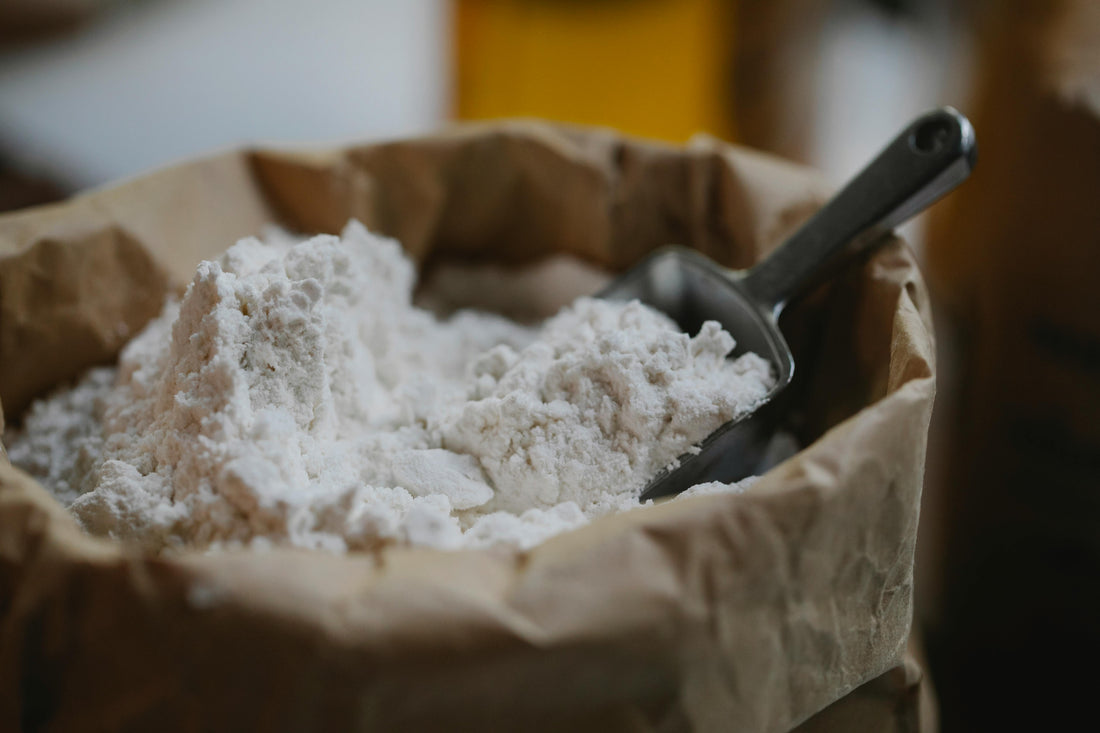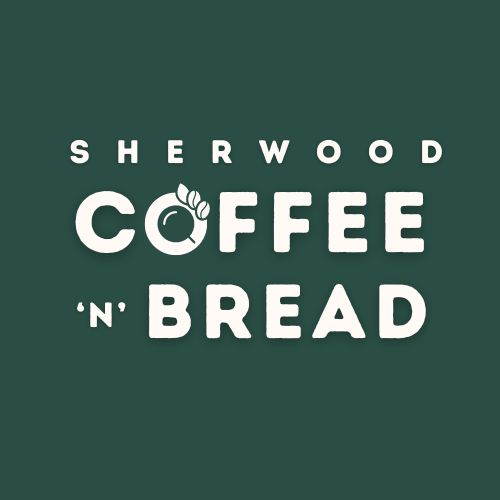
Best Flour for Baguettes: Tips for Perfect Artisan Bread
Share
Baguettes are a timeless symbol of artisan bread baking, cherished for their crisp crust, open crumb, and delicate flavor. But what makes a truly great baguette? It all starts with the flour. When baking baguettes, choosing the best flour for baguettes is the foundation of achieving bakery-quality results.

After years of baking, I’ve discovered my top pick: King Arthur Sir Galahad flour. This professional-grade flour consistently delivers the perfect balance of structure, flavor, and reliability. However, for home bakers, Bob’s Red Mill Artisan Bread Flour is an excellent alternative - widely available and just as impressive.
In this article, I’ll share why these flours are my go-to choices, explain why flour is critical for baguette success, discuss common baking mistakes and practical tips, and provide insights for making baguettes that rival any bakery.
Why Flour is Crucial for Baguettes

Flour isn’t just an ingredient - it’s the foundation of every great baguette. The type of flour you choose directly affects your bread’s texture, flavor, and appearance. Here’s what to consider:
- Protein Content: The protein level determines gluten development, essential for the structure and chewiness of baguettes. A moderate protein content (11.5%-12.7%) is ideal for achieving a light, airy crumb without being too dense.

-
Water Absorption: High hydration doughs (70%-75% water to flour) are key to creating baguettes with an open crumb. Flour with good water absorption ensures a moist, elastic dough.
-
Fermentation Tolerance: Long, slow fermentation develops the complex flavors that make artisan bread so special. High-quality flours can withstand extended proofing without breaking down.
-
Flavor Profile: Artisan flours contribute unique, natural flavors, allowing simple ingredients to shine.
- Consistency: A dependable flour ensures your results are consistent, giving you confidence with every bake.
What About French Type 55 Flour?
In France, bakers traditionally use Type 55 flour for baguettes. This finely milled flour has a lower protein content (about 11.5%), creating the delicate crumb and crisp crust iconic to French baguettes. While Type 55 isn’t widely available in the U.S., you can source it from specialty suppliers if you want an authentic French baking experience. However, American options like King Arthur Sir Galahad and Bob’s Red Mill Artisan Bread Flour work beautifully and are easier to find.
Why I Choose King Arthur Sir Galahad Flour

King Arthur Sir Galahad flour is my top pick for baguettes. Here’s why:
-
Perfect Protein Content (11.7%): It provides the right gluten structure for a light, airy crumb and chewy texture.
-
Unbleached and Additive-Free: Preserves the wheat’s natural flavor and avoids unnecessary additives.
-
Handles Hydration Beautifully: Excellent water absorption makes it ideal for high-hydration doughs.
-
Ideal for Long Fermentation: Tolerates cold retardation and slow fermentation, enhancing flavor complexity.
Learn more at kingarthurbaking.com
Why Bob’s Red Mill Artisan Bread Flour is a Great Alternative

For home bakers, Bob’s Red Mill Artisan Bread Flour is an accessible and versatile choice. Here’s why it’s my second favorite:
-
Higher Protein Range (11.5%-13%): Provides structure and elasticity for both baguettes and other artisan breads.
-
Widely Available: Easily found at grocery stores and online, making it practical for everyday baking.
- Reliable Quality: Bob’s Red Mill is known for consistent milling and excellent performance.
Learn more at bobsredmill.com
Comparison of the Best Flour for Baguettes

| Flour | Protein Content | Best Features | Where to Find |
|---|---|---|---|
| King Arthur Sir Galahad | 11.7% | Perfect protein for structure and crumb, handles hydration well, unbleached, ideal for fermentation | Professional baking suppliers |
| Bob’s Red Mill Artisan Bread Flour | 11.5%-13% | Great for high hydration doughs, widely available, versatile for various bread types | Grocery stores, online retailers |
| French Type 55 Flour | ~11.5% | Authentic French flavor and texture, perfect for light, airy baguettes | Specialty import stores, online |
| King Arthur Bread Flour | 12.7% | Higher protein, ideal for chewy breads, excellent for beginners | Grocery stores, online retailers |
| Central Milling Artisan Bakers Craft | 11.5%-12.5% | Stone-milled for enhanced flavor, organic options available | Specialty baking suppliers |
| Caputo "00" Flour | 11%-12% | Low protein, finely milled for delicate crusts and softer textures | Specialty stores, online |
How to Use This Table
-
For Beginners: Start with Bob’s Red Mill Artisan Bread Flour or King Arthur Bread Flour, as they are easier to source and versatile.
-
For Advanced Bakers: Experiment with King Arthur Sir Galahad or French Type 55 Flour for more refined results.
- For Authenticity: Seek out French Type 55 Flour for classic baguette characteristics.
Common Mistakes When Baking Baguettes and How to Avoid Them

Even experienced bakers face challenges when perfecting baguettes. Here are some of the most common pitfalls and practical solutions to help you achieve bakery-quality results:
-
Using the Wrong Flour
Mistake: Choosing a flour with too low or too high protein content.
Solution: Stick with flours like King Arthur Sir Galahad or Bob’s Red Mill Artisan Bread Flour as it's the Best Flour for Baguettes.
-
Overworking or Underworking the Dough
Mistake: Over-kneading makes the dough too tight, while under-kneading leads to poor gluten development.
Solution: Use the stretch-and-fold technique to gently build gluten strength.
-
Skipping Steam in the Oven
Mistake: Without steam, the crust won’t achieve its classic crispness.
Solution: Place a pan of boiling water in the oven or spritz the dough with water during the first 10 minutes of baking.
-
Incorrect Dough Hydration
Mistake: Using too much or too little water.
Solution: Aim for 70%-75% hydration and measure ingredients with a scale for accuracy.
-
Shaping Mistakes
Mistake: Poor shaping results in uneven baking or flat loaves.
Solution: Practice creating tight surface tension while shaping and sealing the edges.
-
Overproofing or Underproofing
Mistake: Overproofing causes collapse, while underproofing limits volume.
Solution: Use the poke test to check readiness: If the dough springs back slowly, it’s ready to bake.
Practical Tips for Baking Great Baguettes

In addition to avoiding common mistakes, here are essential tips for making baguettes:
- Start with a Pre-Ferment (Poolish): A poolish enhances flavor and texture. Learn more in my guide: Easy Baguette Recipe with Poolish.
- Cold Retardation: Let the dough ferment in the fridge overnight to develop flavor and improve handling.
- Bake at High Heat: Preheat your oven to 480°F or as high as it allows for the best crust and oven spring.
- Score with Confidence: Use a sharp lame or knife to make shallow, angled cuts for even expansion.
Conclusion: Flour and Technique Make the Difference
Ultimately, choosing the best flour for baguettes will elevate your baking and create bread that rivals professional bakeries. Whether you use King Arthur Sir Galahad, Bob’s Red Mill Artisan Bread Flour, or even experiment with French Type 55 flour, your choice will impact every aspect of your bread. Combine high-quality ingredients with techniques like poolish, cold fermentation, and proper shaping, and you’ll create artisan baguettes that rival those from professional bakeries.
Learn with Us: Baking Classes in Albuquerque

Want to elevate your bread game? At Sherwood Coffee 'n' Bread, we offer Bread Baking Classes in Albuquerque to teach hands-on techniques and connect with fellow enthusiasts. Join us to master baguette baking and more!
